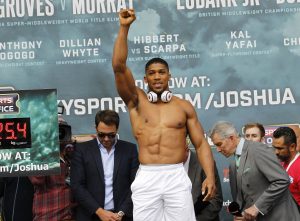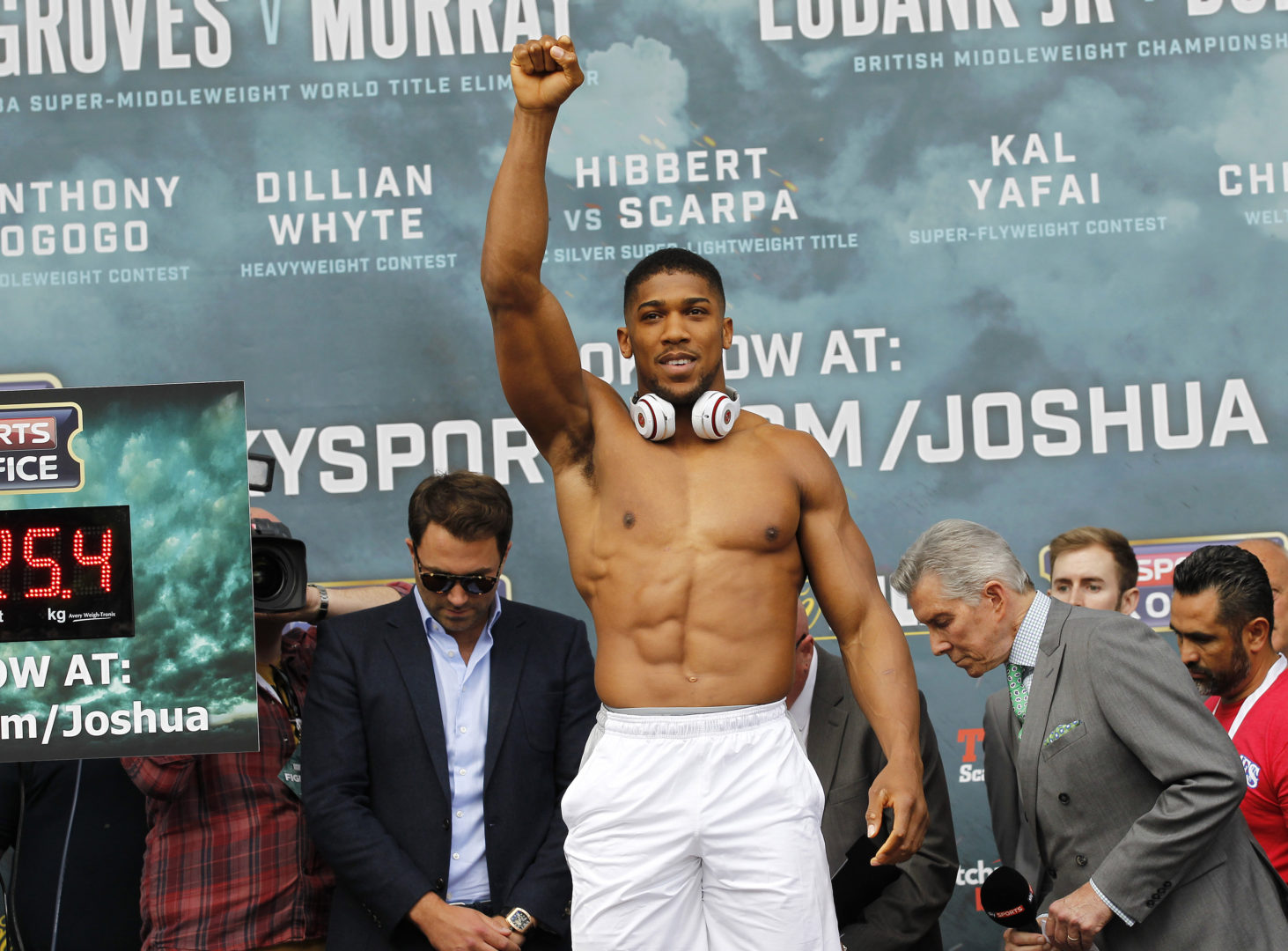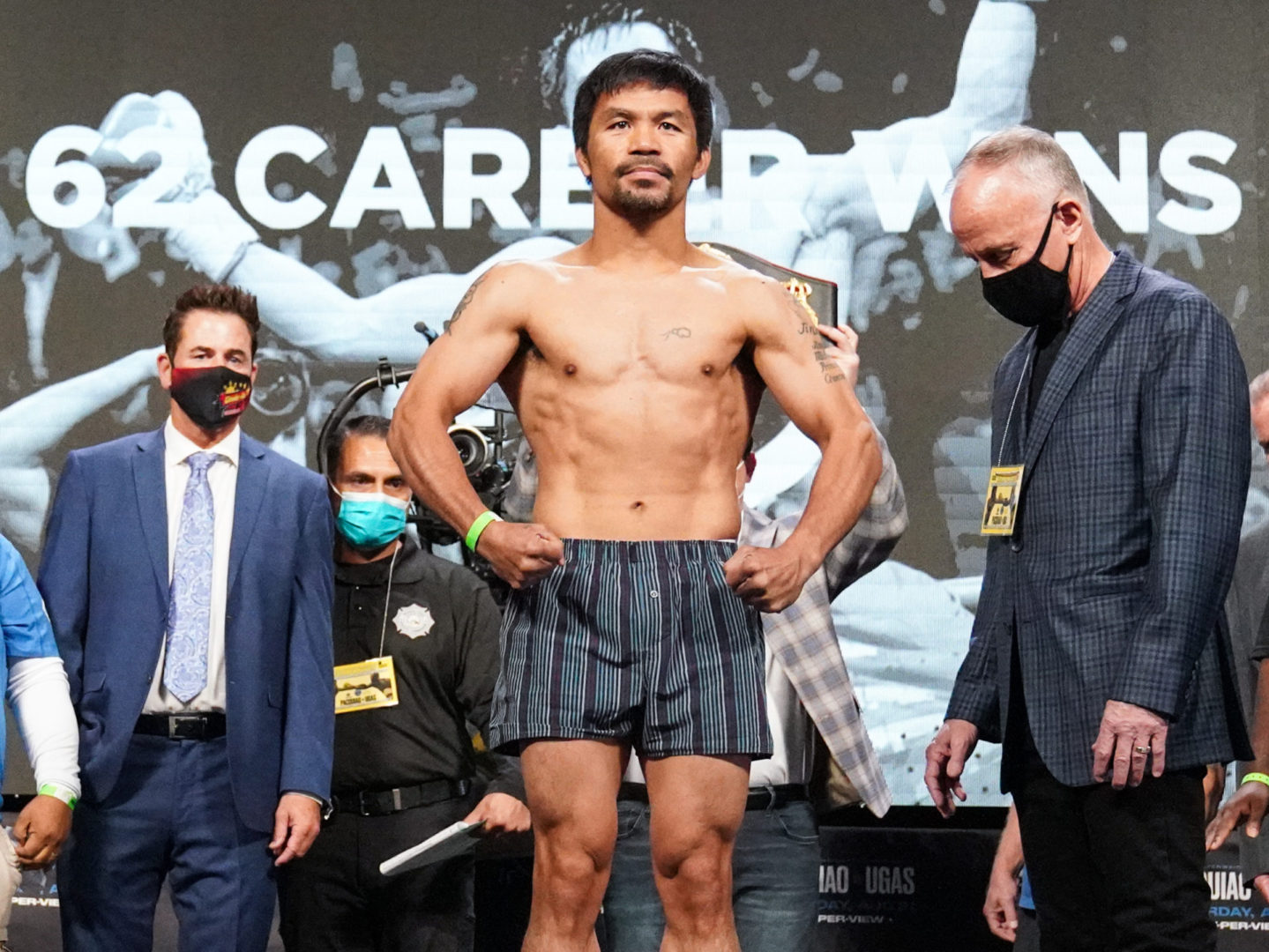By Bart Barry

The biggest prizefight since Froch-Groves II, as measured by ticketsales (an idea at once novel and ancient), is nearly upon us, but near as anyone can tell Americans don’t yet know on which channel we may watch British heavyweight Anthony Joshua against Ukraine’s Wladimir Klitschko. This may well be a plot to drive the last 50,000 committed boxing fans in our nation to pirated streams, but it probably isn’t – though it does ask a question like: If Showtime and HBO wanted to send what few subscribers of theirs still subscribe because of boxing to unauthorized outlets, how would they behave differently?
Nope, I can’t think of any ways either.
This latest premium-cable conflict is the sort that happens in an environment of mutual distrust where public facesaving is a higher priority than it should be. HBO, long supposed to be the A-side of American cable boxing providers, found itself some years back, with Manny Pacquiao’s departure for a fight preceding Floyd Mayweather’s departure for many fights, the B-side, and its esteem as a network has yet to recover.
Showtime has problems of its own, obviously, with its boxing content provider now succumbing to the inevitable – or did anyone really think PBC’s powertrident of inconstant matchmaking, oversized purses and contempt for unbought media was a visionary approach? – but it also has exclusivity with the heavyweight division’s two ascendent names, Anthony Joshua, who probably can fight a bit, and Deontay Wilder, who absolutely positively cannot.
Meanwhile HBO has its aged Ukrainian – along with every other prizefighter raised in the former Soviet Union – and not a whole lot else going on. Never stronger, never better, I know, but HBO Sports is about to join the downward spiral if it hasn’t already: Budget reductions to ensure profitability lead to subscriber departures that lead to further budget reductions to stave away takeovers or supplement “Game of Thrones” or somesuch and that leads to more cablecutting, and before you know it a $3 million licensing fee to broadcast the best-attended heavyweight prizefight since Tunney-Dempsey II is worth a 100-day catfight with a network that used to be your farm-league affiliate for both prizefighter and executive talent.
Some mediation is required, clearly, and that will be the case, still, when this issue gets resolved acrimoniously this week or next. It shouldn’t’ve come to this; it makes the participant leaders of Showtime and HBO look tiny. As one reads over the rumored obstacles in this negotiation, who gets to announce the results of the fight, who gets to announce the results of the negotiation, it reads like so much Money May branding, and we used to laugh about that stuff. The absurdity of it hasn’t changed nearly so much as the players and stakes have – and both for the smaller.
How these details get negotiated by dealmakers in New York didn’t matter to a single generation of fight aficionados until this one, but this generation of American aficionados, for all our suffering, at least preceded the country’s exasperation at giving one’s hopes to a dealmaker from New York.
Likely what is most needed in these negotiations between Showtime and HBO now and in the future is a little magnanimity, a little farsightedness. Regardless of what happens in Joshua-Klitschko I there’s no chance Wlad Klitschko is the future of boxing and at least a fair chance Anthony Joshua is. So negotiate the future accordingly.
If you’re HBO recognize you’ve got the weaker hand here and give away your overpaid veteran for some future draft picks – when Showtime’s beneficiary-cum-sponsor-cum-beneficiary auctions off his assets in 2018. Add a lunacy clause, though, à la Michael Lewis’ “Big Short,” whereby, in the unlikely event both Joshua is a fraud and British judges are honest, and Klitschko somehow decisions Joshua at Wembley Stadium, you rip Showtime’s guts out with rematch fees. Showtime’ll probably sign-on because catastrophes are necessarily improbable; some combination of Showtime’s inevitable dismay with the Joshua product and the disaster insurance you bought from them in negotiating the first fight will lead Showtime to give you full rights to the rematch to do with as you wish (pay-per-view).
If you’re Showtime, realize you’ve got the better product and will have for the next five years at least, and show a willingness to let HBO stay afloat with premier nonheavyweight talent till 2022 or so. When PBC collapses and its fighters return to the predations of the open market, you’re going to have more money than you know what to do with, which matters little ultimately, and the heavyweight division cornered, which matters greatly – or as New York’s most famous dealmaker’d put it: Bigly.
Take your eyes off this moment, in other words, and show some vision, both of you.
The respective heads of Showtime and HBO boxing are young enough to have to make deals with one another for the foreseeable future and the benefit brought by a bit of good faith could be disproportionate. That’s a soft idea, of course, which means a mediator better than a network executive should introduce it. Eleanor Roosevelt, though, had a durable line about such things:
“Great minds discuss ideas; average minds discuss events; small minds discuss people.”
Klitschko and Joshua are people; Klitschko versus Joshua is an event; good faith negotiating is an idea. Probability says the winner of the Joshua-Klitschko negotiation will be the longterm loser, anyway, so either HBO or Showtime should recognize this, advise the other side of it, and then let the other side win, let them enjoy their big event unencumbered by pettiness and subversion, and then enjoy the fruits of that choice for years to come.
Bart Barry can be reached via Twitter @bartbarry










